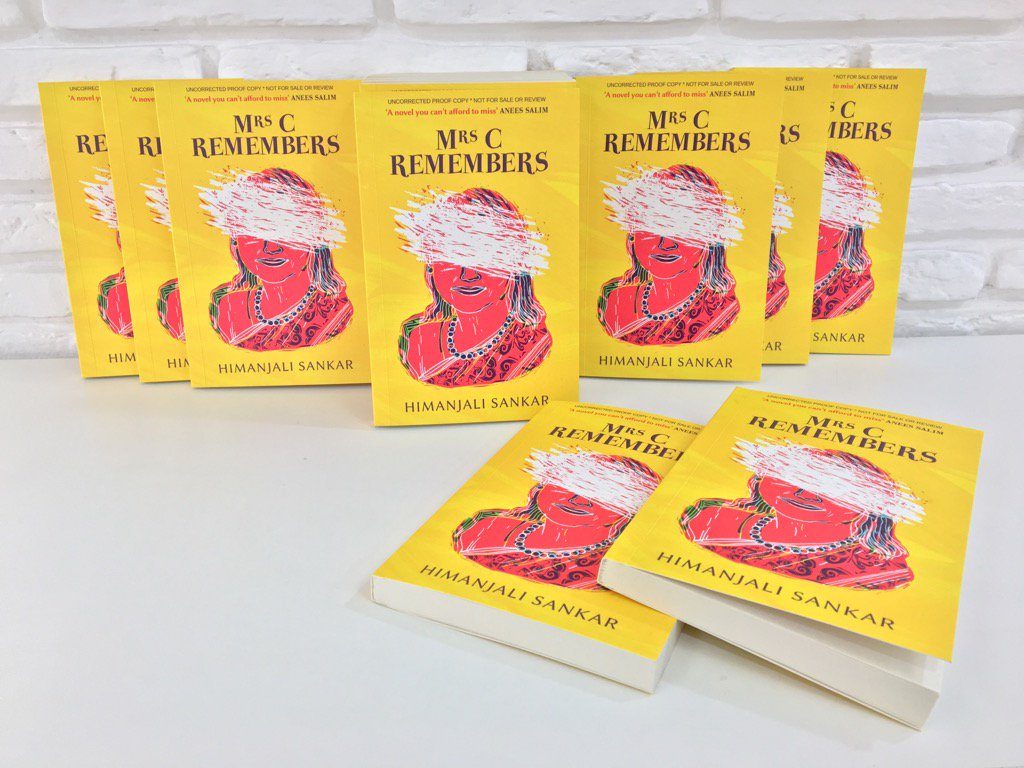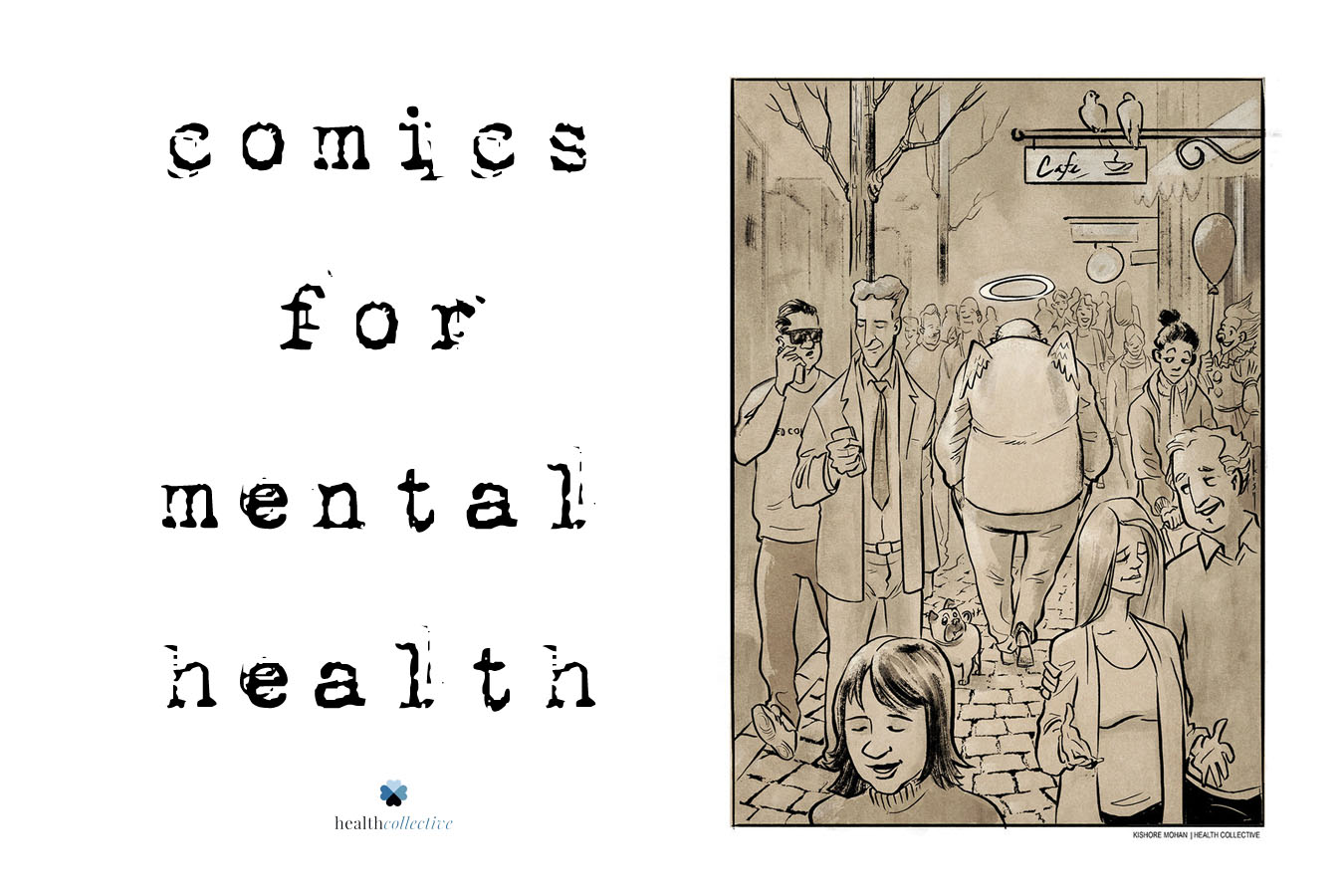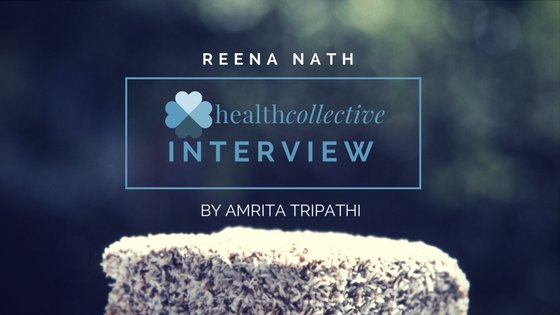Dementia: Five Things Not to Say to People You Care About
By Amrita Tripathi
Do read excerpt of Mrs C Remembers right here on The Health Collective. Below are lightly edited excerpts of an interview with the author, Himanjali Sankar.
1. Congratulations on an incredibly compelling story, a complicated one and a very personal one. First off, what drove you to write this book? And what would you want to share about your own personal story?
The immediate trigger was the movie ‘Still Alice’ which I watched about three years back (at that point, we were coming to terms with the fact that my mother had dementia). I bought the book and read it after watching the movie.
At a personal level the book and movie helped me to understand what she was going through and my own responses to her disease. It also made me aware of the differences in the way we deal with illness in India and in Western countries and it made me wish we were a little less hypocritical about the cracks in our lives and relationships in India.
It’s not that I want to romanticise or stereotype the West in any way but it seems that when it comes to mental illnesses there is a better understanding and means of dealing with them – there are professionals who help you medically and personally, with counselling for the patient and carers – none of this is as developed in our country when it comes to mental/neurological illnesses.
Personally, I didn’t quite set out to tell my mother’s story as much as to put it in a social-cultural context that would be relevant. Since I have always written fiction I wanted to tell a story first, one with a plot that is interesting in itself and with sub-plots that might not have much to do with dementia. The result is a novel that might not be exactly what I had planned!
ALSO READ: THE LAW AND YOU
2. There is the ache that comes through very strongly when the daughter realises that something is going wrong with her mother… she and her brother and others have perhaps been trying to ignore the signs (memory loss etc)… Will you share a little bit on this?
A disease that progresses incrementally doesn’t require a sudden and complete overhaul of our emotional lives the way, for instance, an accident, or a terminal illness does. So at many levels we are still dealing with it – with the slow disappearance of the person we knew. In my family we do our best to be practical and clinical in our approach to most issues and steer away from conversations that we imagine to be excessive emotionally (not saying that’s ideal but that’s how it is) so each of us are on our separate journeys and we don’t quite understand what the other one is going through. But for all of us she was extremely important in very different ways and I imagine the journey of each of my family members is as tough as mine. Especially my father’s – his must be the toughest.

3. What are 5 things (or 7!) you wish people knew about dementia/ Alzheimer’s?
There is so much research still going on – and every day a new theory on how it’s going to be curable soon. Well, I hope it is one day but here are my basic observations on the disease:
- The patient goes through various stages so your responses have to change at every stage too – it’s easy enough to take the cue from the patient, her behaviour is quite transparent so you will know when she’s comfortable and when she’s not
- Don’t infantilise someone with dementia, simply treat them with the dignity everyone deserves – anyone can sense condescension even if they can’t articulate their aversion to it
- Don’t talk about the patient when in the room with him or her – I have seen it being done in front of my mother and I can sense she hates it
- Don’t try to challenge them mentally with questions – it confuses and doesn’t help in any way
- Understand and reconcile yourself to the disease once the diagnosis is there – seeking alternative medical opinions repeatedly is unsettling – also hold back on the advice to the family, however well-meaning. Chances are they are a step ahead when it comes to knowing how to deal with the disease
4. Many of us still struggle with the ‘What will people say’ phenomenon, as families, individuals.. (hopefully less as writers!). Do you think there’s enough being done to reduce stigma, if you’ve felt there is any stigma attached to the issue of dementia/ Alzheimer’s?
I have seen my sister-in-law struggle in Calcutta (she is constantly told what she should and shouldn’t do for her mother-in-law) by well-meaning relatives. Apparently some people burst into tears to show how much they care! Yes, there is much stigma attached to so-called mental illnesses in conservative, traditional societies and I am not sure what can be done about it except to talk about it openly and directly whenever possible. I have a circle of friends who are supportive without being inquisitive, happy to let me talk when I want to. The last time my mother visited me in Delhi some of my school friends came over and recounted memories of her that they had from our school days which was really nice for me – of how she used to quote Shakespeare and discuss books with us, etc. I do very much want to hold on to who she was before the disease got to her.
ALSO READ: MENTAL HEALTH TREATMENT MODELS: THE INDIA STORY
5. Any advice to others on how to approach someone who is dealing with something like this /approach their loved ones. Anything that is helpful? Or not helpful to say?
Here are five things I wish people (especially extended family) knew they don’t have to do/say when it comes to dementia:
-
You don’t have to ooze sympathy, it doesn’t make us feel better if it’s viewed as the biggest tragedy in the family ever
-
Please don’t ask why this happened to her – we don’t have the answer
-
You don’t need to lower your voice or whisper when talking about the patient – regular normal questions asked matter-of-factly won’t make us think you are being heartless
-
Yes, it is a mental disease, sorry if that’s uncomfortable for you
-
And when you ask if it’s hereditary – not supposed to be but, well, you just have to wait till my brother and I are twenty years older to be sure.
I would also like to add that there are many lovely understanding people out there and I personally am tongue-tied when it comes to commiserating with others for any loss they have undergone so completely understand not knowing what to say – I wouldn’t!
6. Lastly, how do you feel about having the book out?! Was there any relief at sharing a story like this — though the book is fiction, we should emphasise!
Yes, I would like to emphasise that there is an interplay of fiction and fact in the book and the particularly sensational bits never (unfortunately perhaps!) occurred. I loved writing the book, it was cathartic in many ways and there was relief in getting so much out. But beyond that the pain is personal and writing is a cerebral act which doesn’t quite help in any permanent sort of way. I have also been surprised by how this story resounds with so many people, especially women. I love hearing from people who don’t know me but who feel the book has helped them to understand their own lives a little better (in whatever way). That does feel good.
Views expressed are personal. The Health Collective cannot substitute for expert advice from a trained mental health expert. Reach out for help: do check for resources available across India.
Share your stories: Write to us @healthcollectif
(This story has been re-edited to fix formatting issues)




Pingback: Understanding Dementia
Pingback: Alzheimer’s: The Need for Compassion, Care